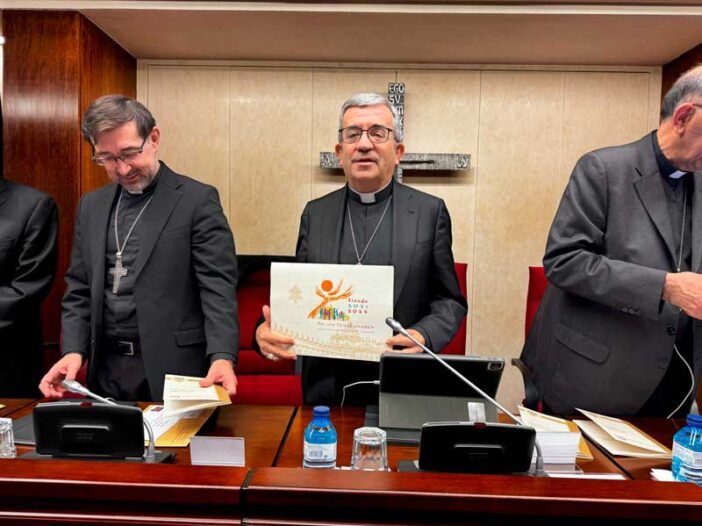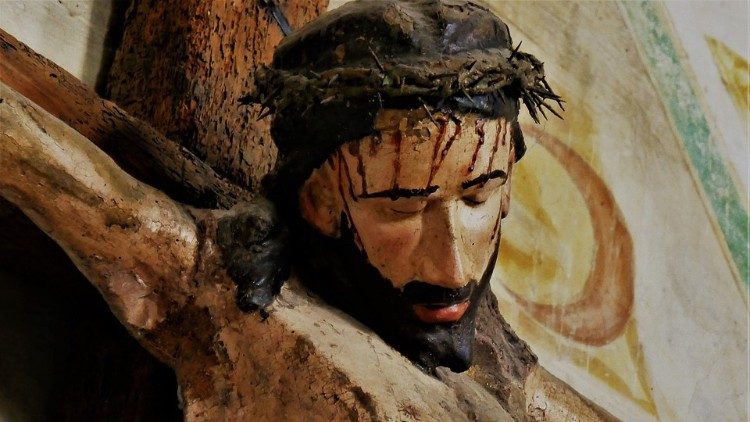Reflection by Bishop Enrique Díaz: The Heart of the Father
Fourth Sunday of Lent

Bishop Enrique Díaz Díaz shares with Exaudi readers his reflection on the Gospel for this Sunday, March 30, 2025, entitled “The Heart of the Father.”
***
Joshua 5:9, 10-12: “The people of God celebrated the Passover upon entering the Promised Land”
Psalm 33: “Test the Lord and see how good he is”
2 Corinthians 5:17-21: “God reconciled us to himself through Christ”
Luke 15:1-3, 11-32: “Your brother was dead and is alive again”
No one can deny that this is one of Jesus’ most beautiful parables, and that it touches the heart because it touches the most intimate fibers. It is well known as the “parable of the prodigal son” because the figure of the son is present throughout the story, and in both good and evil, it evokes in us feelings of condemnation, compassion, or a frank reflection of our own lives. Some have insisted on calling it “the parable of the merciful father” or “the parable of the father’s love,” arguing that while it is true that the prodigal son appears throughout the story and his decision to return is a difficult and highly praiseworthy action, it is incomparable to the attitude of the father’s always open arms that yearn for the son, the restoration of dignity with the clothes and the ring, and the festive celebration around the paternal table. The father’s actions far exceed all expectations and are one of Jesus’ intentions to overturn the distorted image of God the Father that has taken hold of those peoples and that also has a significant impact on our own lives.
But there is another character who also demands attention as an essential element of this narrative: the elder son. And then there are those who prefer to call it: “the parable of the two brothers.” And Saint Luke justifies this narration on the lips of Jesus because: “The tax collectors and sinners were coming near to listen to Jesus. The Pharisees and the scribes were murmuring among themselves: ‘This fellow welcomes sinners and eats with them.’” That is, he presents us with two groups, two brothers: tax collectors and sinners, on the one hand; Pharisees and scribes, on the other. The fratricidal struggle that goes back to Cain and Abel, the conflicts between brothers that appear throughout biblical history, the struggle of peoples and families who have disqualified and attacked each other since all times. Jesus, therefore, takes up these conflicts that occur within families, communities, and peoples, and gives them a new direction. If the Father has come to the wasteful son, offering an incredible welcome with hugs and kisses more reminiscent of a mother, as Hosea would say, if he has organized a great banquet for him with all the people to restore the honor of one who had lost it, with equal or greater affection he goes out in search of the “good” son who rejects his brother. He doesn’t shout at him, doesn’t command him, doesn’t act as a judge or boss; simply, once again as a mother, he begs him to come to the feast. The explosion of anger and the string of complaints seem to reveal the true heart of the older brother. He demands, counts the services, demands attention, and forgets that he has lived in the paternal home, which belongs to the family. He humiliates the father and demeans the brother; he doesn’t understand paternal love for his brother whom he doesn’t recognize. He doesn’t welcome or forgive.
What is going through the father’s heart? He looks with eyes of mercy, speaks with special tenderness, and contemplates the son who has come from afar, not as a depraved person, but as a recovered one, “a dead son returned to life.” But he also looks with immense love on the older brother because he is not a servant or a slave, but a beloved son who can enjoy all the father’s possessions and sit at the table with complete dignity. His only desire is to contemplate his two sons seated at the same table, fraternally and joyfully sharing the prepared banquet. Isn’t this the dream of every father? Isn’t it the dream of every mother? Upon hearing this parable, what would those parents who had closed their doors to their rebellious children who had left home feel? What would those who felt so righteous and secure that they despised their brothers think? Perhaps at first they would judge the father who thus allowed his sons’ debauchery and arrogance to be foolish and pusillanimous. But upon contemplating his incredible compassion, upon seeing him forgive and maternally protect the lost son, upon seeing him go out to meet the very troublesome older brother, seeking reconciliation and participation in the same feast, we were all surprised and moved by such great love. Perhaps this is the greatest lesson Jesus wants to offer us: above our pettiness and misery, our fraternal struggles and disqualifications, is the loving heart of the Father.
The three characters in the parable should challenge us deeply, and we can assume the role of each of them and compare it with our own behavior. And so, at times we will see ourselves as the son who, drowning in misery, fallen to the depths, finds himself helpless, humiliated by his own ambitions, and now needs to return, to return to his father’s house; at other times we will feel embraced and caressed by the Father who has rescued us from sin. May we never adopt the attitude of the older brother, of harsh criticism and a closed heart, who neither converts nor accepts the conversion of his brother, who closes himself to the Father’s goodness and excludes his brother from the table, with justifications. Lent is a time to rise up and return to the Father to feel once again all his tenderness; it is a time to recover the dignity of a son and assume the condition of a brother. Will we dare, this Lent, to return to the Father’s house?
Lord, Father of Mercy, help us recognize the barriers we have erected that distance us from our brothers and sisters by distancing us from You. Give us strength to face our misery, rise from our sins, and return to your loving arms. Amen.
Related

Bishop Luis Argüello Addresses the Challenges of the Church in Spain
Exaudi Staff
01 April, 2025
2 min

THE WAY OF THE CROSS: Accompanying Jesus on the way to the Cross
Luis Herrera Campo
31 March, 2025
5 min

Mother Carmen Rendiles, the first Venezuelan saint proclaimed by the Universal Catholic Church
Exaudi Staff
31 March, 2025
3 min

The International Academy of Catholic Leaders: Renewal and Commitment to its Mission
Exaudi Staff
30 March, 2025
4 min
 (EN)
(EN)
 (ES)
(ES)
 (IT)
(IT)

